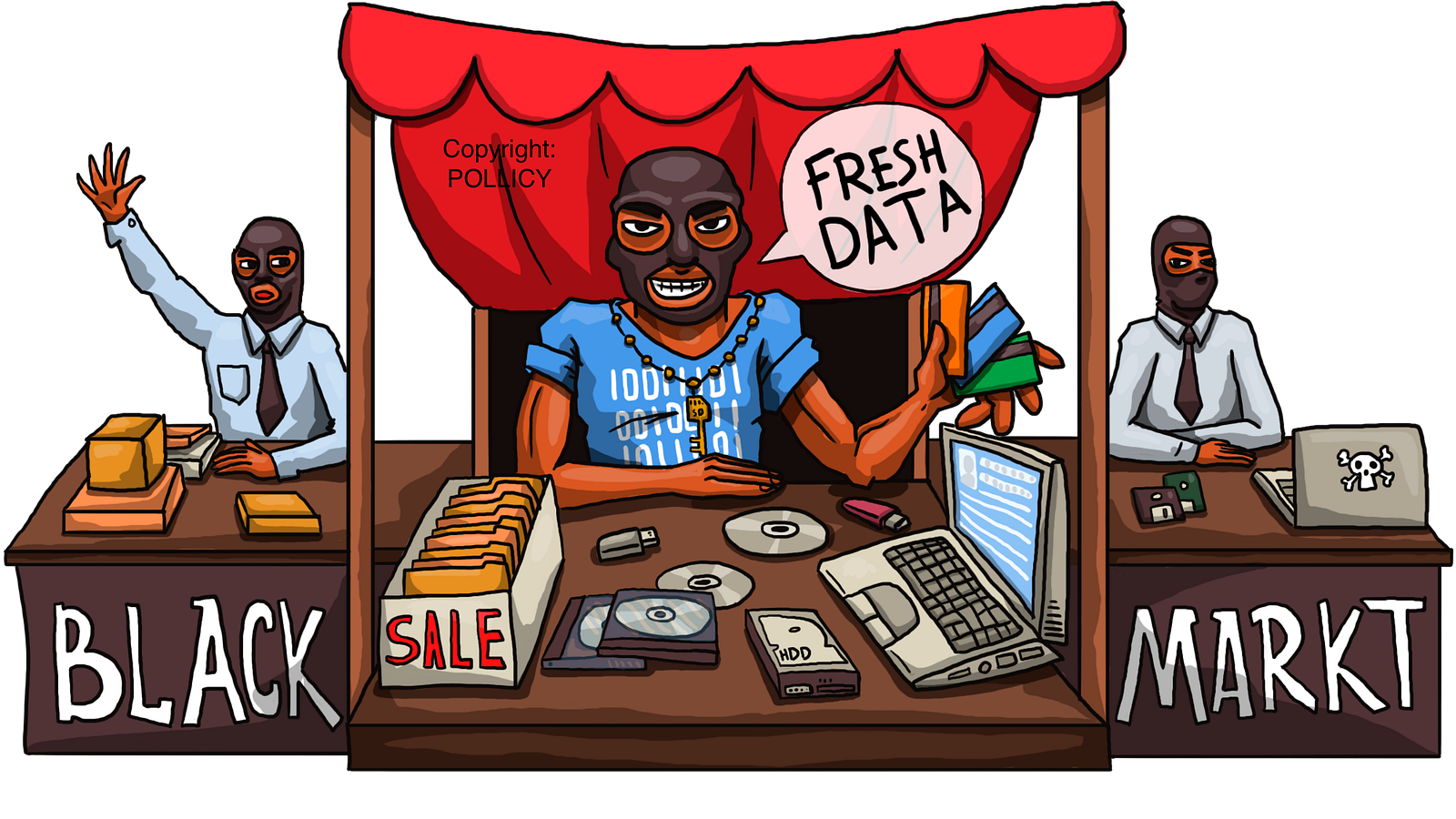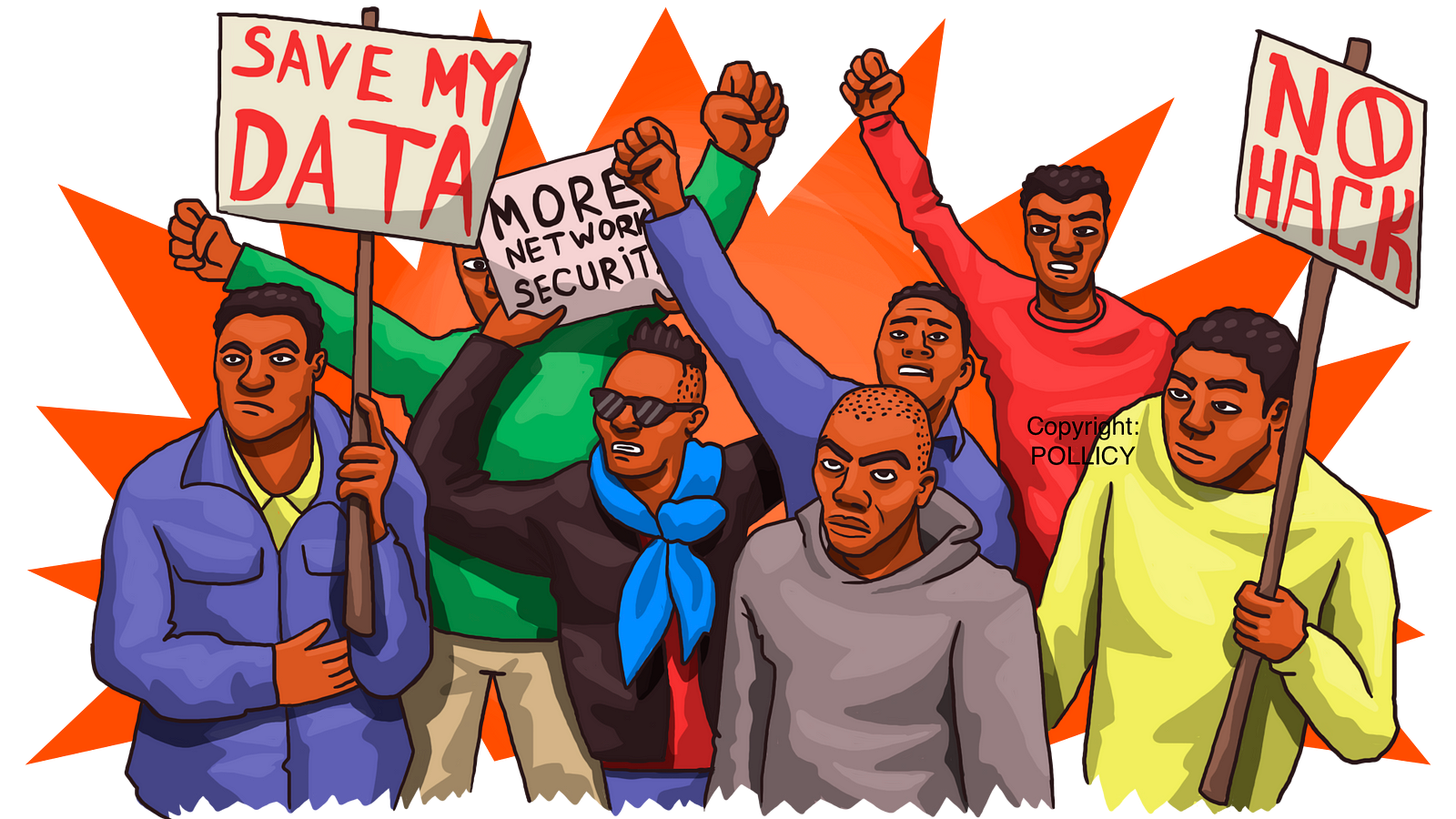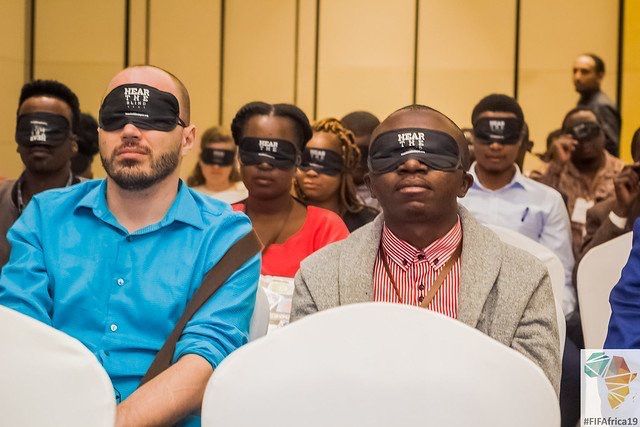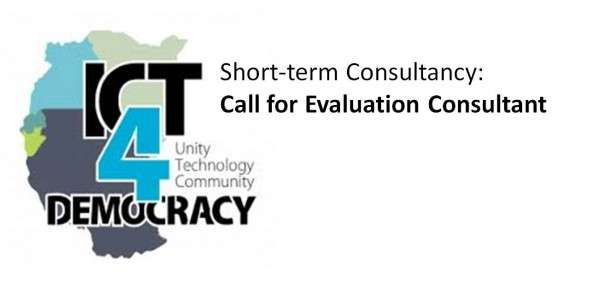By Hilda Nyakwaka |
The Forum on Internet Freedom in Africa event this year was hosted in Addis Ababa between 23rd and 26th September. This event was considered monumental because a few months prior, there were internet shutdownsand this was a testament to the progressive strides Ethiopia was making in creating an open and accessible internet for its citizens.
The first two days of the week were dedicated to a training on the Universal Periodic Review (UPR) hosted by Small Mediaand Data4Changeand with representatives from over 10 African countries.The UPR, an innovation by the UN Human Rights Council, is a periodic review of the human rights records by the 193 member states of the UN (UPR). The main purpose of this training was to see how to champion for digital rights at the coming UPR.
Over these two days participants went over different concepts such as the importance of making recommendations to countries through the UN in an effort to improve the digital space, how to build capacity for recommendation-making processes, how to increase participation in the UPR process and how to foster collaborations between participants from different countries.
Some common concerns that the participants shared about the previous UPR cycles included the focus of civil society organisations on report writing as opposed to lobbying, lack of accessibility to stakeholder reports by diplomats and other concerned citizens and the lack of focus on digital rights and other human rights when making recommendations.
Some of the key takeaways were the toolsbuilt by Data4Change to guide interested parties in creating advocacy strategy plans. These tools help users to not only see what recommendations have been made to their countries of interest, but to also discover and fill the gaps in the recommendations made and which countries would be important to partner with. During this session, all participants were able to make and rate each other’s recommendations to their individual countries with specific attention to digital rights.
There was also a general agreement to increase local stakeholder mobilization, awareness workshops, jointly documenting abuse of digital rights so as to have greater impact and lastly to properly document all our work. At the end of the training, we were all awarded certificates of completion for attending the trainings and completing online courses pertaining to the UPR process.
The next two days marked the official start of the forum, which was open to everyone who had registered to attend. There were several panel sessions occurring simultaneously focusing on different internet issues across Africa. The opening panel was attended by H.E Dr. Getahun Mekuria, the Minister of Information and Technology in Ethiopia who reiterated the government’s plans to liberalize the telecommunications industry in Ethiopia and to reduce cases of shutdowns in a move to increase and improve the citizens’ access to the internet.
Sessions that I was particularly interested in narrowed, their focus to how marginalized and targeted communities interact with technology and some of the solutions they have adapted to their situations.
One such session was on the importance of African feminist movements in improving women’s voices in the digital space as moderated by Rosebell Kagumire, an award-winning blogger and Pan-African feminist . In this session, feminists from across the continent reiterated the ways in which offline patriarchal systems were replicated online against women. One point that resonated with most attendees was that women were still being policed and bullied out of a lot of social apps such as Twitter and most women preferred to be invisible. Cases were brought up on how hypervisible women were facing a lot of challenges.
In addition to this, there was also a celebratory moment when the panelists mentioned some of the movements that succeeded in championing for women’s rights both offline and online some as big and visible as the #TotalShutdownKE that fought against femicide in Kenya and the revolution in Sudan that had women at its forefront and which gained support from across the world. A major gap that was identified in this conversation was the need for building more local movements and having inclusivity within the movement to include women from the LGBTQI community as their online experiences were unidentified despite being equally important.
Another key session was held on technology and disability where persons living with disabilities spoke about how to use ICTs to reduce accessibility barriers. Some of the challenges the panelists included insufficient ICT training, lack of accessibility features on even the most basic layouts of sites and apps, affordability of devices with accessibility features as one of the panelists cited that a mobile phone with accessibility features would cost one $800 which most Africans both abled and disabled cannot afford comfortably.
An Ethiopian Case Studywas used to explain just how crucial and important it was to provide holistic education and inclusive support to people living with disabilities within our communities. Some of the solutions that the panelists offered up to improve accessibility included proper policy implementation and strict punitive measures for those who failed to implement any policies, being intentional by teaching about accessibility features right from software development classes at the college level and putting a cap to funding that requires companies and organizations to provide opportunities for and hire people living with disabilities in their firms and provide ample accessibility features before receiving full funding. There was also a call to create awareness campaigns to make citizens aware of the challenges that a large section of our communities experience and how to develop protection mechanisms for them.
In conclusion, FIFAfrica 19 was a great opportunity to share experiences and solutions to challenges we as Africans seem to be experiencing when it comes to digital rights and internet freedom. In case you weren’t able to join us in Addis for this edition of FIFAfrica, find herethe agenda for the forum, somelive tweets from the event and the report on the State of Internet Freedom in Africaby CIPESA, launched at the forum.
‘People With Disabilities Left Out in ICT Jamboree’
By Marc Nkwame |
As more Tanzanians join the digital world of Information Communication Technology (ICT), the majority of people living with disabilities have been left out, according to stakeholders.
It has been observed that in their quest to optimize profits, equipment suppliers, content producers and mobile communication service providers skip the needs and rights of persons with disabilities wishing to access such services.
Speaking during a special awareness workshop for Information Communication and Technology accessibility among persons with disabilities, the coordinator, Paul Kimumwe from the Collaboration on International ICT Policy for Eastern and Southern Africa (CIPESA) pointed out that it is high time countries formulated special laws to ensure that marginalized groups are also catered for when it comes to such services.
“And if countries have such policies in place, there is the need for legislators to push for their execution, as it seems mobile service providers cater only for a physically able clientele,” he specified.
His observation was also reflected in an assessment tool for measuring mobile communication accessibility for persons with physical disabilities deployed among participants during the just ended workshop on how ICT development side-lined people with special needs.
Dr Eliamani Laltaika, a lecturer from the School of Business Studies and Humanities at the Nelson Mandela African Institute of Science and Technology (NM-AIST), said the society’s mentality and personal stigma contribute in how ICT establishments view the needs of disabled persons.
“Unlike in the past, people should now realize that in the modern era, all is needed for a person to be useful is a healthy brain not peculiar appeal,” he cautioned.
According to the Don, it is usually the persons with physical disabilities that can prove to be extremely good intellectually and especially in Information Communication Technology (ICT), which means once empowered they can perform better than their physically fit counterparts.
Participants realized that mobile handsets are designed for people with hands and those with strong eye sights, while traders and phone service providers are yet to import gadgets that can cater for people without sight or hands.
Ndekirwa Pallangyo, representing the regional chapter for the Federation of Disabled Persons’ Associations in Tanzania (SHIVYAWATA), admitted that people with disabilities have been left out in ICT development.
“And the worst part of it is that even persons with disabilities themselves are unaware that they have been side-lined,” he said, underlining that when it comes to attending to the needs of the physically handicapped, it is important to consider individual requirements.
“There are those who are physically fit except for their sight. Others have impaired hearing, some can’t walk while there are those with no hands, etc. therefore each group need to be handled according to needs,” the activist added.
Originally published on IPP Media
How Nigeria and Uganda are Faring on the Right to Information
By Tomiwa Ilori |
Transparency and accountability in governance are key tenets of participatory democracy. To this end, Sweden was the first country in the world to introduce a right to information (RTI) law back in 1766. Finland followed in 1919, and to-date, over 100 countries across the world have enacted laws that give citizens the right to access information in the hands of government.
In Africa, 21 countries have passed Freedom of Information (FOI) laws, while 16 have proposed laws. Most countries have constitutional provisions for the right to information, pursuant to obligations under various international and regional instruments. These include the Universal Declaration of Human Rights, the International Covenant on Civil and Political Rights (ICCPR), the African Charter on Human and Peoples’ Rights and the Declaration of Principles on Freedom of Expression. A model law on access to information for Africa was prepared by the African Commission to serve as a template and encourage more countries to adopt legislation embodying international, regional, and sub-regional standards.
Meanwhile, there have been regional efforts to ensure citizens’ realisation of the right of access to information. Civil society organisations together with the African Union and African Commission on Human and Peoples’ Rights adopted the African Platform on Access to Information Declaration in 2011. There was also the Midrand Declaration on Press Freedom in Africa in 2013 which recommended that African countries take up open governance culture through access to information laws. However, the reality for most countries is that information requests are routinely refused or ignored, with citizens sometimes turning to the courts in order to access information in the hands of government.
Nigeria passed its freedom of information law in 2011. Under the Act, public institutions and “private companies utilising public funds, providing public services or performing public functions” are mandated to make public records and information freely available, guarantee citizens’ right to be duly informed of facts relevant to them and maintain records of all activities, operations and businesses. Without specifying whether its calendar or working days, the law provides for a response time to information requests of seven days. This may be extended if the request involves a large number of records or consultations have to be made. Proactive disclosure is also provided for under the law. Information exempt from disclosure includes that related to international relations, defence, law enforcement and investigations. Wrongful denial of information is an offence under the Act, punishable with a fine of Nigerian Naira 500, 000 (US$1,400).
The Attorney General of Nigeria is mandated to collate information on implementation of the Act based on information from the various government entities. According to statistics from the official FOI website, the number of requests made by citizens is on the decline. In 2013, 1,183 requests were recorded, of which 48 were denied. The following year, requests dropped by three quarters to 314, 35 of which were denied. Requests further dropped in 2015 to 217, of which 36 were unsuccessful. Figures for subsequent years are unavailable but denial of access to information remains prevalent.
In a May 2018 case, a human rights lawyer was denied information on fuel imports by the Nigerian National Petroleum Corporation (NNPC). The corporation argued that it was established “by law to manage the commercial interests of Nigeria in the oil and gas sector of the economy and conduct trade therein”, and was therefore not a public institution within the meaning of the Freedom of Information Act.
The following month, a Nigerian court denied an access to information request for details of the President Muhammadu Buhari’s medical bills. The request was filed to the Central Bank of Nigeria by the Advocacy for Societal Rights Advancement and Development Initiative (ASRADI).
Some cases of denial have compelled requesters to seek orders for disclosure. For example, the Nigerian Contract Monitoring Coalition initiated a court case and succeeded in compelling the Power Holding Company of Nigeria, the Electricity Distribution Company Plc and the Nigerian National Petroleum Corporation to release information, which had initially been denied.
Courts have also set precedent in proactive disclosure by public institutions. In February 2014, a Federal High Court ordered the National Assembly to make its financial records accessible to members of the public through the provisions of the Freedom of Information Act of 2011. This galvanised the #OpenNASS advocacy campaign. More recently, the Court of Appeal in the Akure Division, Ondo State, ruled that the Act is applicable across federal states. This has put to rest the debate as to whether States in Nigeria need to comply with the provisions of the Act.
The situation in Nigeria mirrors that in Uganda whose access of information law was passed in 2005 but challenges still persist. The law has remained largely unimplemented because many public institutions have a culture of secrecy –they rarely release information pro-actively and routinely ignore citizens’ requests for information. Where government information or data is available, it is often not in reusable formats. Likewise, most citizens are not empowered to make information requests due to ignorance of the law, thus undermining participation in civic engagements and governance processes.
Furthermore, implementation of the access to information law in Uganda is hindered by limitations to the bodies or organs to which information requests can be made – the law excludes private entities and civil society. Like Nigeria, information exempt from access in Uganda includes that related to privacy of an individual, defense, security, international affairs, legal proceedings and law enforcement. The response time for a request is within 21 days of receipt. Wrongful denial of requests is punishable under the Act with a fine of Uganda Shillings 4,800,000 (US$1,300) or imprisonment for three years or both.
User statistics from Uganda’s Ask Your Government portal show that since its launch in June 2014 to-date, 2,647 requests have been made to 106 agencies. Out of these, 231 are indicated as successful and 40 unsuccessful. With over 2,300 requests awaiting responses beyond the 21 days limit, the majority can be regarded as refusals pursuant to section 18 of the Access to Information Act (ATIA), 2005. The section states: “where an information officer fails to give the decision on a request for access to the person concerned within the period contemplated under section 16, the information officer is, for the purposes of this Act, regarded as having refused the request”.
Some Ugandan citizens have also opted to seek redress from the courts for denied requests. In 2009, two Ugandan journalists sued the government over failure by the Solicitor General to grant access to information regarding oil production, prospecting and exploitation agreements. The case was dismissed on the basis that a clause in those agreements provided for confidentiality.
In a landmark case, on February 2015, a Chief Magistrate’s Court in Kampala ruled that the reasons for which information is requested or the belief about how it will be used “are irrelevant considerations” in determining government’s approval or denial of a request. The ruling came after the Hub for Investigative Media was denied access to information related to activities of the National Forestry Authority funded by the World Bank between 2009 and 2011.
Implementation of access to information laws in Nigeria and Uganda shows that there is a lot to be done with respect to giving life to the existing legislation. Some of the ways through which the policy and practice gaps can be overcome is through records digitisation in all public institutions. This will not only help to save time in operations, it will also help with efficient record-keeping, search, retrieval and disclosure. Equally, translating freedom of information laws into local languages will help raise awareness on the rights of citizens and the obligations of duty bearers which will go a long way in realising the objectives of the FOI laws. Implementation of the laws can also be fast-tracked through compliance reporting to parliament by state institutions.
Ultimately, the experiences of Nigeria and Uganda show that courts are proving to be a means of recourse, and if effectively utilised, have the potential to set national and even regional precedent to make it easier for citizens to exercise the right to information.
Call for Evaluation Consultant: ICT4Democracy in East Africa Network
The Collaboration on International ICT Policy in East and Southern Africa (CIPESA) is seeking an evaluation consultant to establish the achievements, outcome and challenges registered by the ICT4Democracy in East Africa Network during the period June 2016 to December 2018. The evaluation will assess the appropriateness, effectiveness and outcomes of the network in relation to the program objectives
Closing date for applications: 17:00 hours East African Time (EAT) on Friday December 7, 2018
Further details on the scope, eligibility and how to apply are available here.
Privacy & Protection: Do Ugandans Care What Happens to Their Data?
By Neema Iyer |
Let’s be honest.
When was the last time you read the “Terms and Conditions” before you signed up for a new service online?
We don’t blame you. It’s easy to get lost in the legal jargon.
But do you know what happens to your personal data every time you click on “I have agreed to terms and conditions”? Did you know at the mere click to accept, you could have given a way a portion of your vital information and put your data privacy in absolute jeopardy?
Today, it’s hard to raise the issue of data privacy without putting a thought on the recent Facebook-Cambridge Analytica scandal that made many people realize the power of data. Even with as much information spewed out explaining what the scandal was about, very few took a note to learn from.
A recent allegation from the Cambridge Analytica scandal pins the Uhuru Kenyatta presidential campaign to have employed social media surveillance results to target campaign messages to different profiles of voters. This was possible because Facebook monitors your social media activity and can predict your behavior from that, hence such information is used to target messages that speak to your interests and emotions to sway major decisions such as election outcomes. This isn’t just happening on our doorsteps, allegations claim similar outcomes in the United States and the UK.
The EU revised as much on data privacy and protection in Europe and promised to give users more power over their data. While Europe seems to take quick action, down in Uganda and Africa at large, we continue to grapple with weak data privacy and protection laws, a citizenry that is not well-informed on data privacy, a delay in passing necessary bills and weak implementation processes. Unfortunately, a majority of African countries lack the necessary mechanisms for the inclusive participation of citizens and other stakeholders in the processes of formulating the very laws on internet and digital rights that directly affect them.
Do we care about Data Privacy and Protection?
In December 2017, Unwanted Witness, an activists group petitioned the Uganda Human Rights Commission (UHRC) to compel Parliament to speed up the enactment of privacy and data protection law.
They argued that without a governing law, citizens’ personal data is exposed to abuse without collection and protection safeguards. They further asked UHRC to prioritize privacy and recognize it as a fundamental right under attack in the country. However, to date, we are yet to see significant action taken to build an informed citizenry on their digital rights and to provide appropriate protections.
When talk about data arises, many are not really willing to delve further into the ethics surrounding the topic. This can and will still be attributed to the high illiteracy levels in the country and because many don’t know what data is or how valuable it might be on the long run, they will give it away easily. Funny as it may sound, a majority internet users think ‘data’ is the a term tied to the internet bundles that the ISPs provide and it’s that school of thought that has stuck with them. Whether their data gets in the hands of the wrong or the right people, it’s the least of their concerns.
Data Protection basically means to ensure the right to privacy, respect to confidentiality principles in various relations such as doctor patient, employer-employee and service providers with their clients generally.
Did you know that privacy is your human right?
The right to privacy refers to the concept that one’s personal information is protected from public scrutiny. It is essentially, your right to be left alone. Privacy is a core aspect of human dignity and values such as freedom of association and freedom of speech.
One would wonder, even with the data privacy breaches, are there really laws in place to curb and punish those that are misusing people’s data and evading on their privacy or we are simply looking while our data gets tampered with and is easily handed to the wrong hands.

Are there Laws in Place?
Yes! There is a Ugandan Data Protection and Privacy Bill that was tabled before parliament in 2015 and although the Bill needs to be revised and aligned better with human rights provisions, comments have been raised on the need to balance civil liberties, national security and data protection and privacy.
According to a paper published a couple of years ago by Dr Ronald Kakungulu Mayambala a Senior Lecturer of Human Rights and Peace Centre at Makerere University, Article 27 of the Constitution guarantees the right to privacy of person, home and other property. In particular, article 27(2) of the Constitution provides that a person shall not be subjected to interference with the privacy of that person’s home, correspondence, communication or other property.
Unfortunately there is no comprehensive law giving effect to article 27, yet a lot of data concerning individuals are collected, stored or processed regularly by various institutions in the private and public sector, including banks, hospitals, insurance companies, the Uganda Citizenship and Immigration Control Board, the Uganda Revenue Authority, Uganda Registration Services Bureau, the Electoral Commission, utility service providers and telecommunications companies under the SIM card registration exercise
The Bill seeks to protect the privacy of the individual and personal data by regulating the collection and processing of personal information. It provides for the rights of persons whose data is collected and the obligations of data collectors and data processors; and regulates the use or disclosure of personal information.
However even with these laws and bills in place, further questions continue to be raised on whether they even hold any solid ground in implementation, especially, if there has not been enough sensitization of the bills and data literacy.

What do some people think about data privacy in Uganda?
A chat with a few random Ugandans around town shows you just how long of a way we have to go with the data privacy and protection talk.
“I honestly have nothing to hide with my data and anyone who wants to access it can go ahead and access it. Your data can only be private if you choose to keep it private but if you choose to put it out there and later claim for privacy, then you are playing yourself” — Lisa
“Whatever you put out there is public. I don’t really care who gets my data because once Ipost anything on social media, it’s no longer in any way private. I get a need for data privacy if it comes to my business data like emails. That is when i need some real privacy” — Hans
“Data privacy is not even a topic of debating here in Uganda because people don’t really care what happens with their data. Because we have a huge Internet penetration gap, very many people don’t even know what data is in most parts of africa.” — Emmanuel
‘Do Ugandans really Care About their #Data Privacy?’
— Pollicy (@PollicyOrg) April 29, 2018





